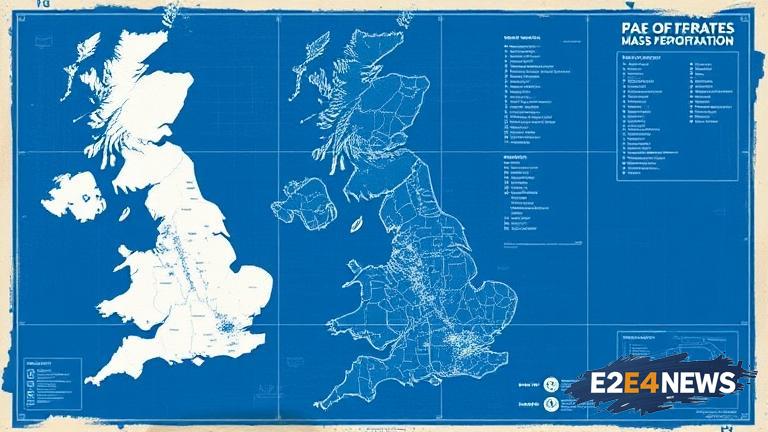Nigel Farage, a prominent British politician, has unveiled a contentious national emergency blueprint, which includes a proposal for mass deportations in the UK. The plan has sent shockwaves throughout the country, with many expressing outrage and concern over the potential consequences. Farage, known for his hardline stance on immigration, has argued that the move is necessary to address the growing issue of illegal immigration and to protect British citizens. The proposal has been met with fierce opposition from various groups, including human rights organizations and immigrant advocacy groups. Critics argue that the plan is inhumane, unjust, and violates international human rights laws. The mass deportation blueprint has also sparked concerns over the potential impact on the UK’s economy, with many businesses relying on immigrant labor. Despite the backlash, Farage remains resolute, insisting that the plan is essential to restoring order and stability in the country. The proposal has also raised questions over the role of law enforcement and the potential for human rights abuses. As the debate rages on, many are left wondering what the future holds for the UK and its immigration policies. The national emergency plan has been described as ‘explosive’ and ‘divisive’, with many calling for a more nuanced and compassionate approach to addressing the issue. Farage’s plan has also been criticized for its lack of clarity and detail, with many questioning how the mass deportations would be implemented and what the consequences would be for those affected. The UK government has yet to comment on the proposal, but it is likely to face intense scrutiny and opposition from various quarters. As the UK continues to grapple with the issue of immigration, it remains to be seen whether Farage’s plan will gain traction or be dismissed as a radical and unworkable solution. The proposal has also sparked a wider debate over the role of nationalism and populism in shaping the UK’s immigration policies. Many have expressed concerns that the plan is driven by a xenophobic and anti-immigrant agenda, rather than a genuine desire to address the complex issues surrounding immigration. The mass deportation blueprint has also raised questions over the UK’s relationship with the EU and its commitment to upholding human rights and international law. As the controversy surrounding the plan continues to grow, it is clear that the issue of immigration will remain a highly contentious and divisive topic in the UK for the foreseeable future. The proposal has also sparked concerns over the potential impact on community cohesion and social stability, with many arguing that the plan would only serve to exacerbate existing tensions and divisions. Despite the opposition, Farage remains a prominent figure in British politics, and his plan is likely to continue to generate significant attention and debate. The UK’s immigration policies have long been a subject of controversy, and it remains to be seen how the government will respond to the growing pressure to address the issue. As the national emergency plan continues to dominate the headlines, many are left wondering what the future holds for the UK and its immigrant communities. The proposal has also raised questions over the role of the media in shaping public opinion and influencing the debate over immigration. Many have criticized the media for sensationalizing the issue and perpetuating negative stereotypes about immigrants. The mass deportation blueprint has also sparked a wider debate over the need for a more nuanced and informed discussion about immigration, one that takes into account the complex social, economic, and cultural factors that shape the issue.
